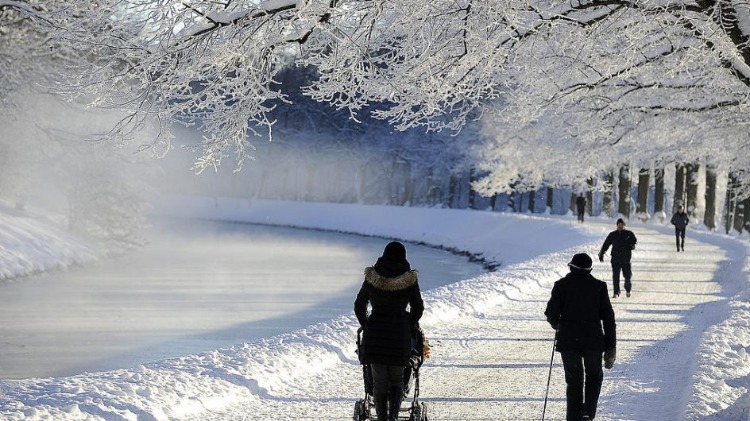Protect the heart in winter: reduce risks and take countermeasures
Caring for your cardiovascular health is critical during the cold months because the heart weakens in winter. The new year may sometimes start with mild temperatures, but there are still long winter months to survive. As temperatures inevitably become more seasonal, it's important to keep up with your health, especially your heart.
Causes of weak heart in winter

Cardiovascular disease is the leading cause of death, and rates tend to increase in the winter months. Studies from the 1970s indicate a higher rate of cardiac death and heart attack during the cold season. There are many factors that are likely to contribute to the increase in cardiovascular problems, including environmental and biological causes. However, we see an increase in heart problems, especially in older people who are at higher risk.

Scientists have found that snowfall for five or six days is associated with coronary artery disease and stroke. It is also possible that some patients simply tried to shovel snow out of their driveway. If you see an older neighbor who may have trouble shoveling snow, it's always a good idea to offer help.
Other factors that can affect the heart in winter are diseases and viruses, such as seasonal influenza or respiratory infections. These can trigger various heart diseases depending on your general health. Cold temperatures can also change hormone levels. This increases blood pressure and other factors that can predispose our blood to clot.
Scientific evidence and tips

Of course, medicine also deals with the phenomenon of cardiovascular diseases in winter. The research examines seasonal patterns in 12 cardiovascular diseases, including deep vein thrombosis (DVT), pulmonary embolism, stroke, and heart failure. So, according to researchers, there is a clear seasonal trend in cardiovascular disease, with the highest incidence occurring in the colder winter months.
Regular physical exercise and a balanced, nutrient-rich diet are crucial for your heart health in winter. Also make sure to dress warmly. Most importantly, find out when to see your doctor if you notice any immediate symptoms.
Symptoms of a heart attack are different in men and women, but may include chest and upper body problems, shortness of breath, and nausea or drowsiness. You can even break into a cold sweat. If someone suddenly stops responding and / or stops breathing normally, call the emergency services immediately. When it comes to your heart, seconds are sometimes crucial. In such cases, act as quickly as possible.
The post Protect your heart in winter: reduce risks and take countermeasures appeared first on Deavita.com | Living ideas, design, hairstyles, make-up, lifestyle, health and beauty tips.





















